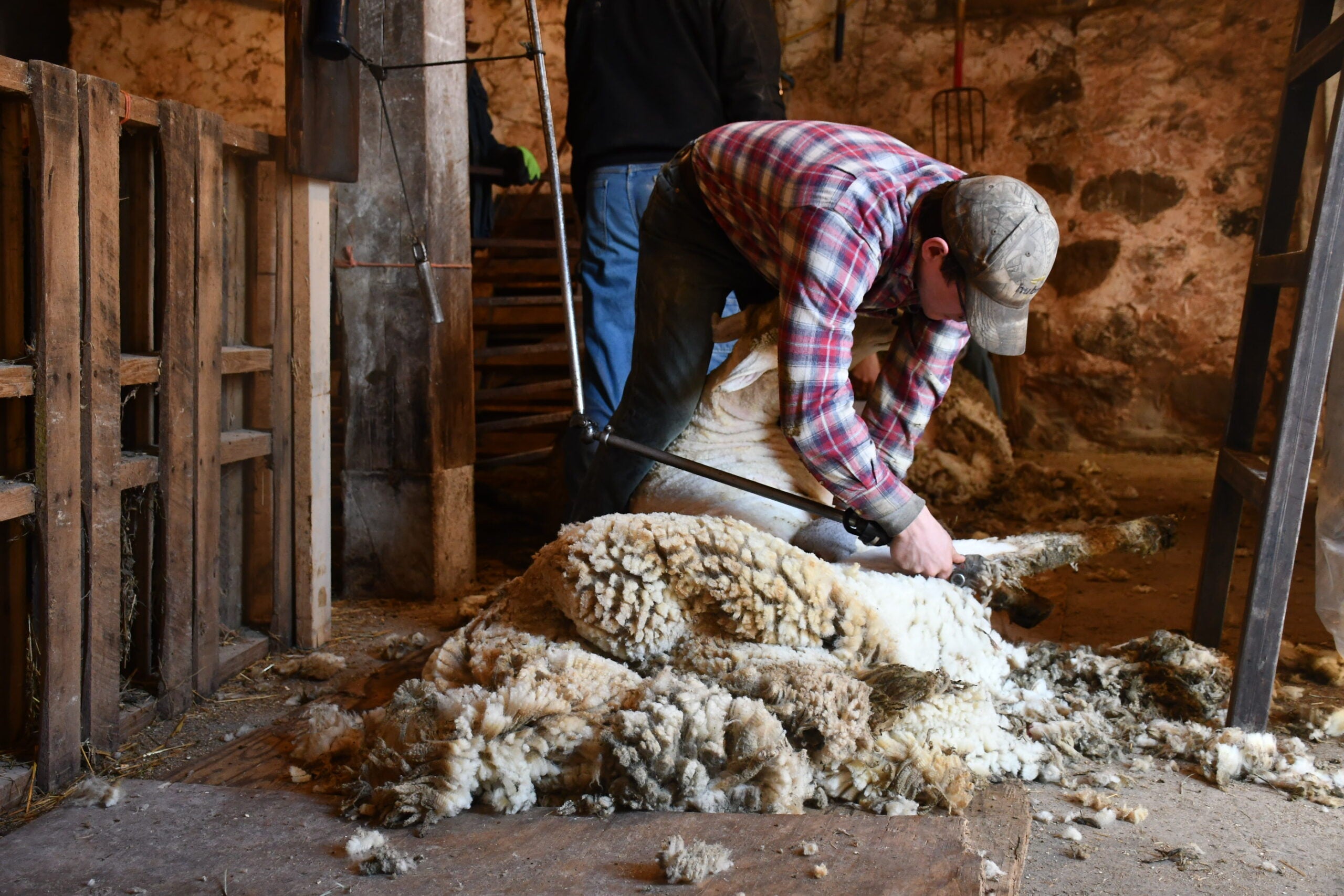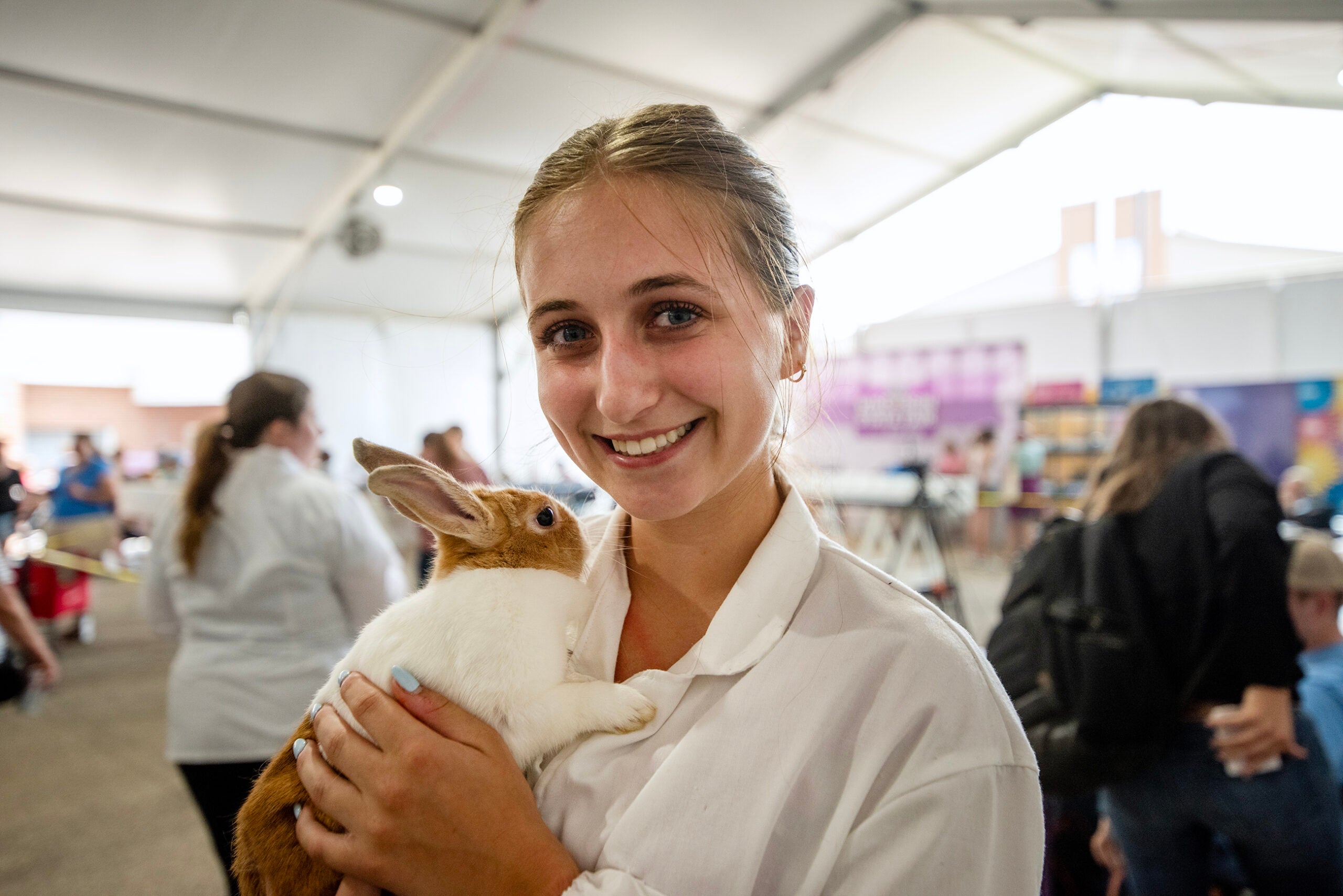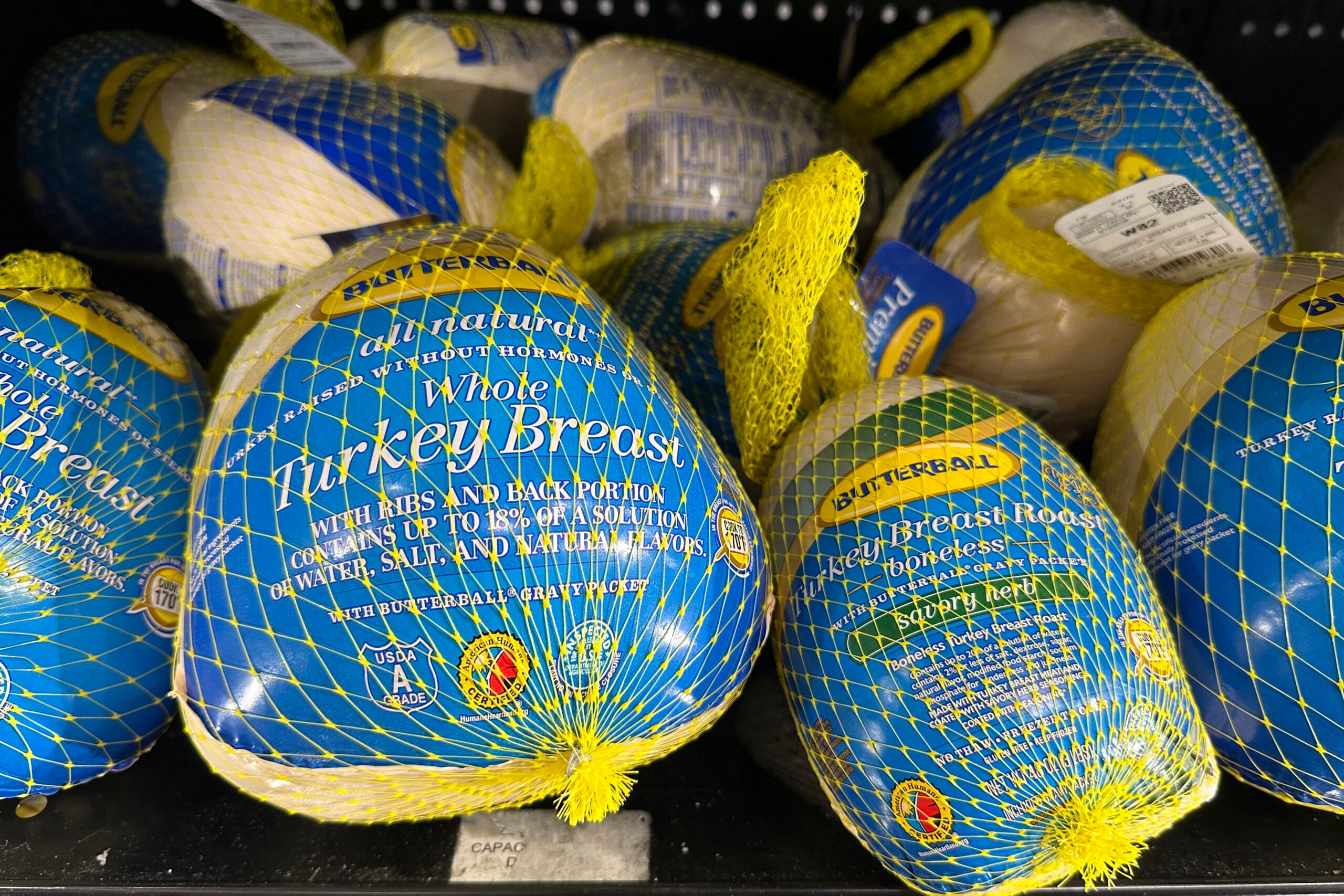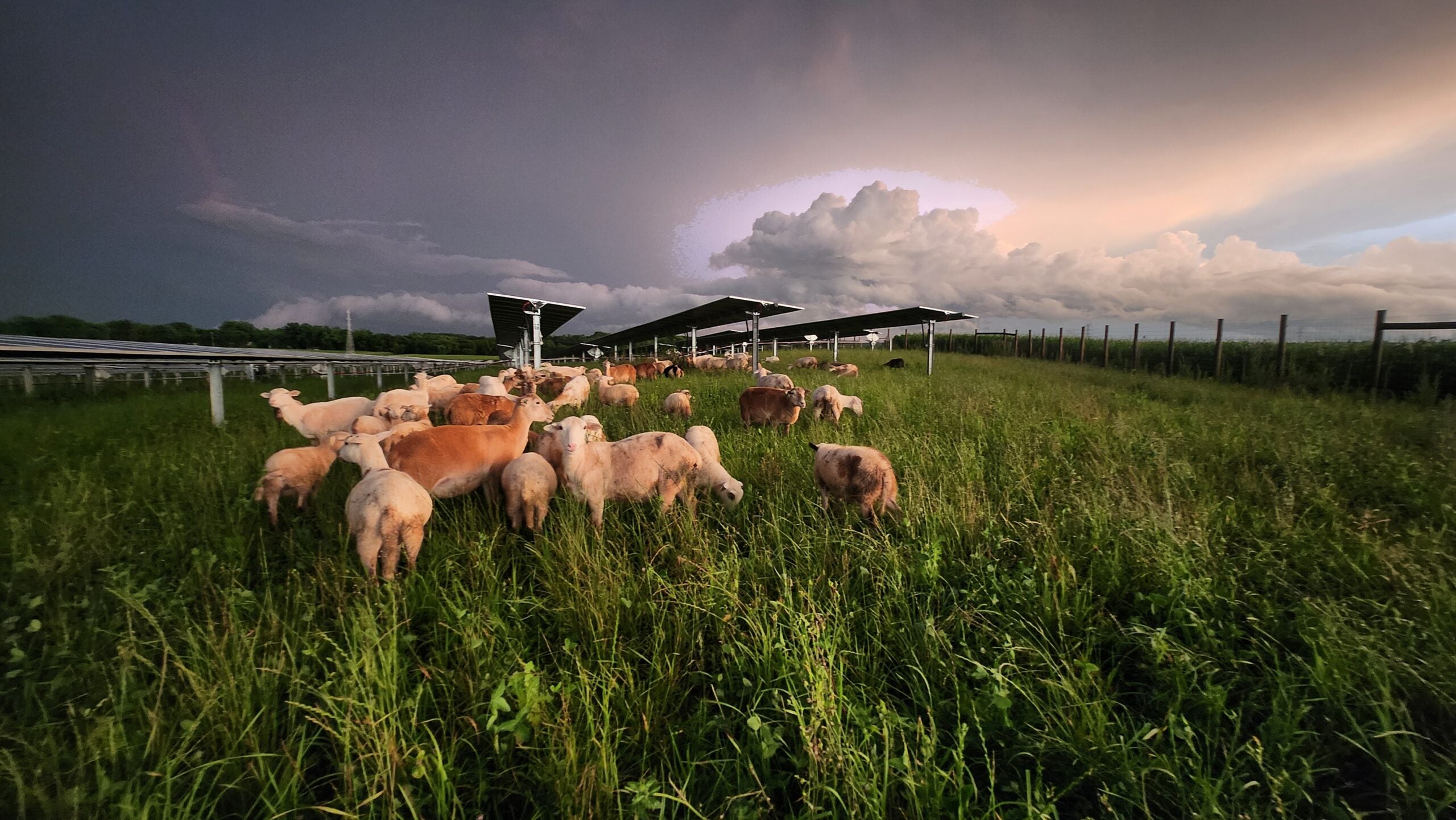Jerome Huber remembers the first time he sheared a sheep.
“My first job out was nine head for the neighbor. Took me all afternoon,” he recalled in his Oxford farmhouse.
Huber was 15 years old. Too young for a driver’s license, he had to get rides back and forth to jobs across southern Wisconsin.
News with a little more humanity
WPR’s “Wisconsin Today” newsletter keeps you connected to the state you love without feeling overwhelmed. No paywall. No agenda. No corporate filter.
Today, Huber can shear the same number of sheep in less than 30 minutes and has passed the skill down to his sons and grandsons. While his shearing business has grown over roughly 70 years, the demand for workers like him is much higher these days.
Fewer people are becoming professional shearers in Wisconsin, where about 78,000 sheep and lambs live. Huber and his family are now rare specialists in the state’s farming industry.
“The need for sheep shearers is at an all-time high around the country and globally,” said Todd Taylor, a manager of the sheep research unit for the University of Wisconsin-Madison.
Taylor said the physical demands of the job, mixed with experienced shearers retiring, is contributing to the shortage.
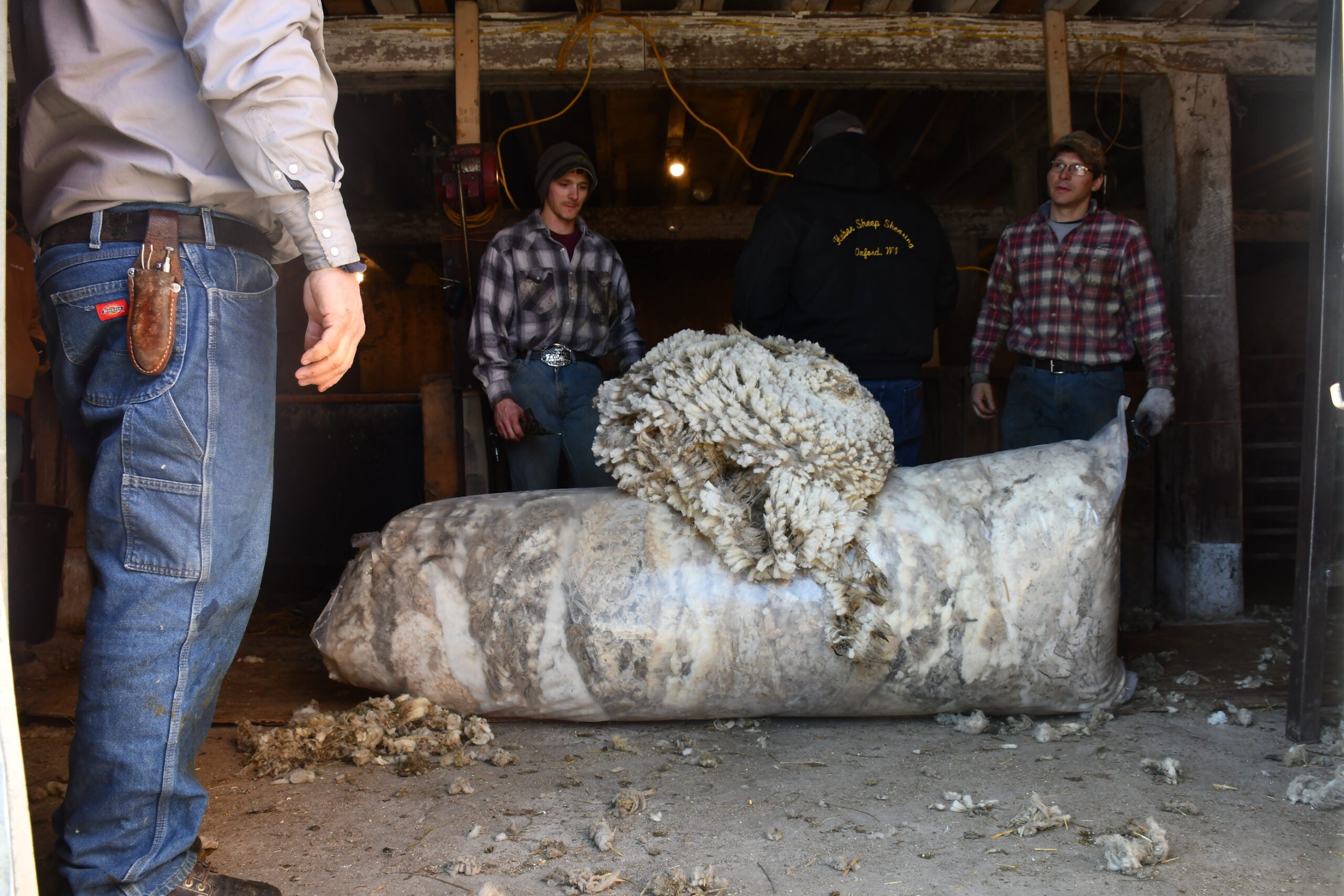
Specialized skill
Sheep shearing requires training and practice to become efficient. Taylor said the Hubers are masters of the trade.
In February, Joe Huber traveled to shear a herd of 400 sheep with his two sons. They completed the job in two days, averaging about 15 sheep an hour.
At his peak, Jerome Huber would shear 20,000 sheep a year and estimates the family in total has sheared over a million sheep to date.
“There is a technique to it. It’s not just lay a sheep down and start shearing,” Taylor said. “There is a proper way to do it so that you can efficiently and safely get the wool off in one piece.”
The job requires a crew of people. A wrangler plucks sheep from the herd that can weigh hundreds of pounds. A wool handler gathers and rolls the wool. The wool comes off sheep in a single piece and weighs on average 5 to 15 pounds.
Shearing school
Sheep must be sheared, the Hubers and Taylor said. Less wool helps sheep deliver lambs in more sanitary conditions and makes it easier for lambs to feed from their mothers.
Joe Huber has been shearing for 43 years. He teaches a sheep shearing course with Taylor each year in Arlington. Huber said around 16 to 20 people typically sign up. One or two go on to become sheep shearers.
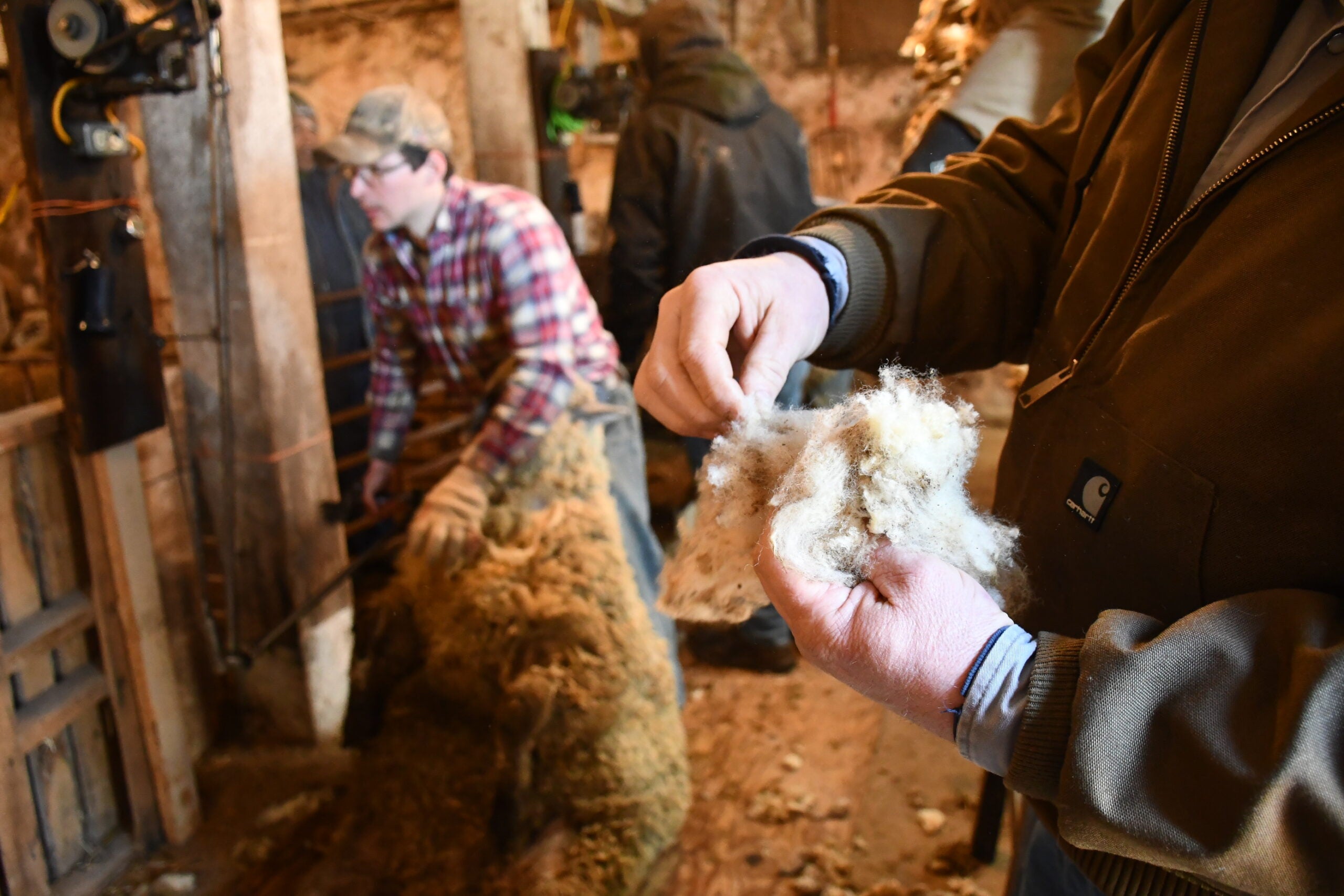
Shearing schools are decades old. Jerome Huber attended one as a child.
“When I was going out on jobs, I’d find out the farmer went to shearing school, and I asked, ‘What did you hire me for?’ They’d say, ‘Well, we only learned one thing in shearing school: That we ain’t going to shear our own sheep,’” Jerome Huber said.
Wool production down
Although the demand for sheep shearers is high, Wisconsin today is home to fewer wool-producing sheep than past decades.
The U.S. Department of Agriculture says Wisconsin generated nearly 590,000 pounds of wool in 1997. Last year, about 45 percent less wool came out of the state.
“What changed was the generation,” Jerome Huber said. “Now everybody’s going to polyester clothes and everything.”
Sheep farmers receive less for the price of wool in Wisconsin than the national average. In 2023, Wisconsin farmers received 40 cents per pound of wool compared to the national average of $1.56 a pound, according to the U.S. Department of Agriculture.
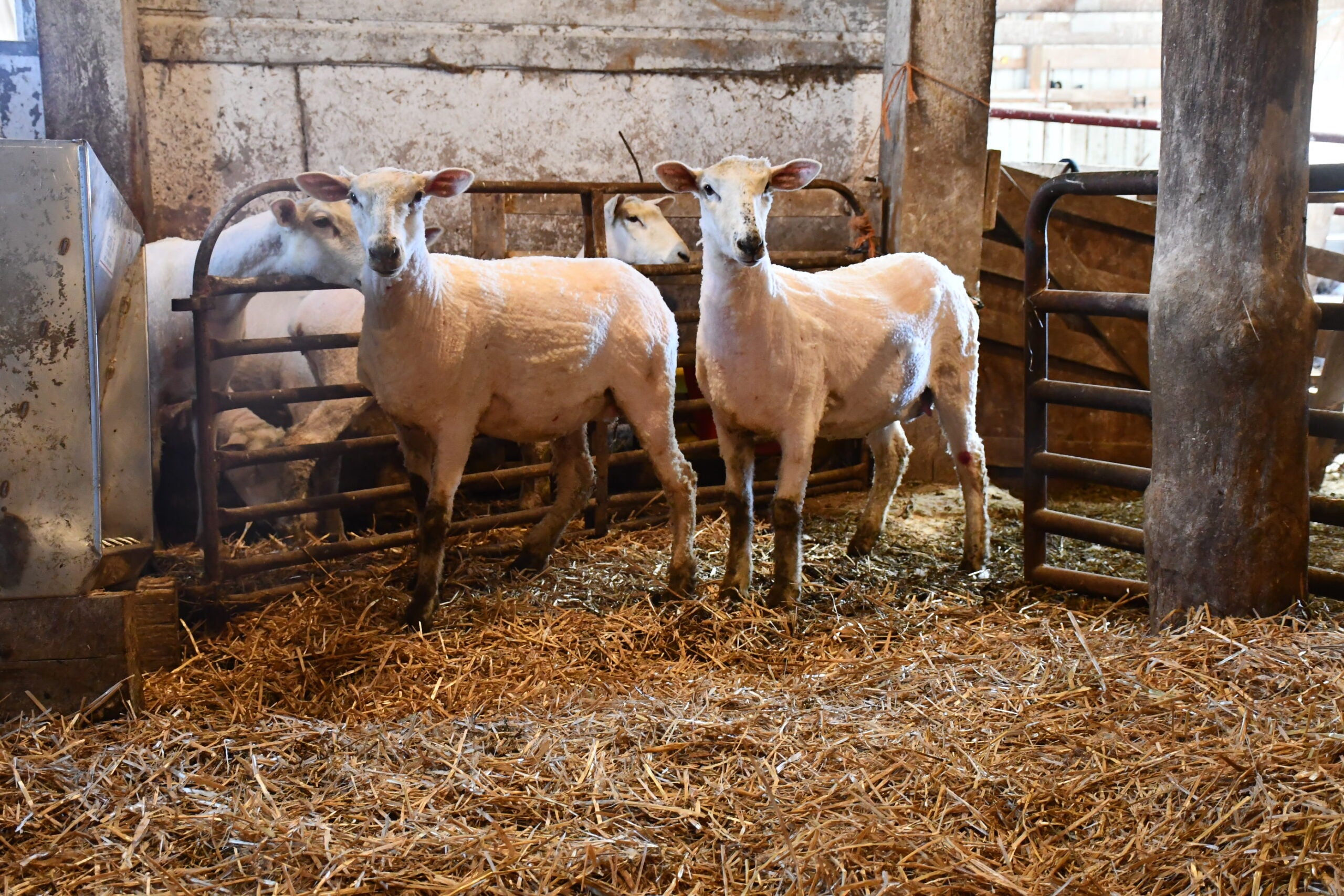
Jerome Huber, who has worked with sheep farmers and owns sheep himself, said farmers made pennies per pound of wool after their expenses.
“I never thought that I’d ever see this,” he said.
A family legacy
On a recent Saturday at the Huber farm in Oxford, the family is settling down after the busiest season for sheep shearing — before sheep deliver lambs.
Several barns at the farm are filled with sheep and equipment. The farmhouse has been in the family for generations. Jerome Huber was born in the bedroom where he sleeps today.
Friends and relatives visit the farm to watch the family shear their 90 head of sheep. At least 15 people gather in one barn to watch the Hubers take turns shearing. Jerome Huber’s great-grandchildren came from Iowa to watch while his wife prepares a big family meal inside the farmhouse.
“A lot of days that we go shearing… it’s like a party or Christmas dinner when we get done,” Joe Huber said. “We still have fun doing it.”
Wisconsin Public Radio, © Copyright 2025, Board of Regents of the University of Wisconsin System and Wisconsin Educational Communications Board.

